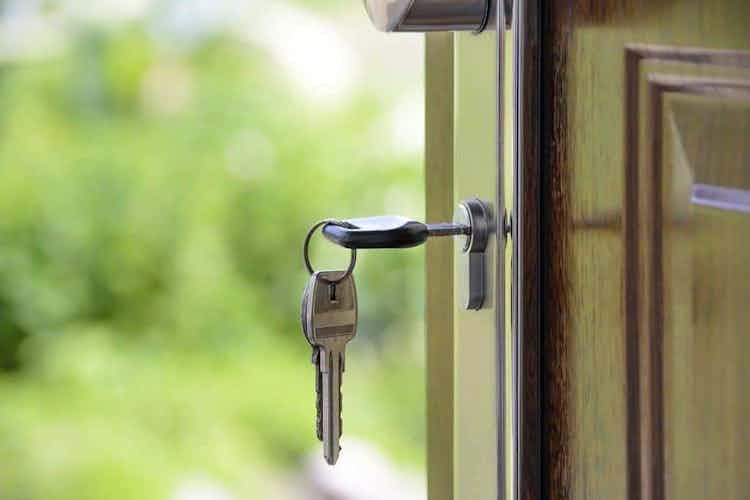A crucial part of inheritance tax (IHT) is the valuation of your estate. You need to know the value of your estate so you know how much IHT will apply when you die. When you’re planning inheritance, it is a good idea to understand how the valuation process works and how you can estimate the value of your estate.
Why do you need to value your estate for inheritance tax?
There are practical reasons why estimating your estate’s value is a good idea. The obvious reason is that you need to have the valuation of your estate available before your property and other assets can be distributed to your loved ones.
When you die, your estate goes through a legal process called probate. It gives the legal right to deal with your property, money and possessions. For the probate to finish, your estate has to go through valuation. If you have the value calculated in advance, the process will usually complete quicker.
It is worth estimating the value of your estate before your death for inheritance tax planning purposes. Inheritance tax won’t apply if the total value of your estate is not higher than £325,000. By estimating the value while you’re still alive, you can prepare your estate in a way that helps lower the tax paid.
You can find more information about the IHT thresholds from the government website.
How to value your estate
The process to value your estate is straightforward; you need to identify all the assets you own and then estimate their value.
List all your assets and debts
Start by listing your assets. These include things like:
- Money in your bank account, pensions and investments
- Payments that will be made when you die, like life insurance payouts
- Possessions you own, including your house, jewellery, car
It's not necessary to list each item you own, but you can create categories for your possessions such as ‘furniture’ and ‘jewellery,’ for instance. The most valuable items should be mentioned on their own.
You should also create a separate list of any gifts you’ve given recently. Your estate’s valuation must include any gifts you’ve made in the seven years before you died. Keeping an accurate list can help ensure you don’t increase the IHT burden on your estate.
Certain gifts are exempt. You generally include only gifts that totalled £3,000 or more per year or if you continued to benefit from the gift. Read more about gifts that may be subject to IHT here.
As well as listing your assets, it’s worth creating a note of your debts as well. These are not included in the gross value of your estate. However, debts must be reported to HMRC after your death, so having a list helps those dealing with your estate.
Estimate the estate’s value
Once you have listed your assets, gifts and debts, you can begin estimating their value and calculate the gross value of the estate. The gross value refers to any assets plus gifts.
You can use the asset’s realistic selling price on the open market. For example, you can look online what similar or the same types of items are selling for. This is useful for things like furniture, jewellery, phones, clothing and cars. For collectables and antiques, you might want to seek help from a specialist.
For many, the most valuable asset will be property. For IHT planning purposes, you can use an estimated valuation. You can use similar properties in your area as guidance or ask a local estate agent for a valuation.
When your estate is going through the probate, the person sorting out your affairs might need to have a professional assess your property's value. You can use an RICS property surveyor, for example. A professional valuation will be required if your estate’s value is close to or above the IHT threshold.
If the asset is owned jointly with your spouse or civil partner, you can divide the value by two. Any property or land owned jointly with others needs to be divided by the number of owners. You are then allowed to take 10% off your share.
Once you have estimated values for all of your assets, you can put them together to see the estimated gross value of your estate.
Do you need accurate valuations or estimates?
As mentioned above, when you are planning for IHT, you can use estimated values for your assets and gifts. Many items you own could change in value over the years, so you are dealing with estimations at this point.
The situation is slightly different after your death. HMRC might require professional valuations, especially if the assets are valued over £1,500. In general, you can use estimates if one of the following conditions applies to your situation:
- The estate’s gross value is below £250,000
- The entirety of the estate passes to your spouse or civil partner, a charity, or an organisation such as community amateur sports club
What if you are sorting out someone else’s estate?
The above helps ensure you can plan your estate for IHT and make it easier for your loved ones to deal with your estate after your death.
If you are sorting out someone else’s affairs and you need to value their estate, a few things can help you with the process. You need to contact any organisation they hold assets with.
The most common institutions include:
- Their bank
- Their pension provider
- Their employer
- Any companies they held shares in and other organisations that hold assets such as ISAs, investments or assets in a trust
- Their mortgage lender (if they had one) or their landlord if they lived in rented accommodation
You should write to the organisations and ask for the value of the asset or debt at the time of the person’s death. You will need to include a copy of the death certificate to your enquiry.
For other assets, you can use estimations as explained above or seek for a professional valuation to calculate the gross estimated value for the estate.
The valuation process can take six to nine months. The larger the estate, the longer the valuation process typically takes.
You don’t need to have the value of the estate ready right after a person dies. Deadlines tend to occur only if the estate has to pay IHT.
The main deadlines to keep in mind are:
- IHT forms must be sent within a year
- Tax payments should begin by the end of the sixth month after the death
You’ll need to report the value to HMRC. In most cases, you can report online. HMRC may also ask you to fill out a paper form.
Getting help to value your estate for inheritance tax
The above process is not complicated, especially if you are not leaving behind a large estate. If you have set up trusts and you have several properties, using professional help is an option. A solicitor can assist with the different tasks and ensure you get the right valuation.
You can also contact HMRC if you have questions about IHT.







